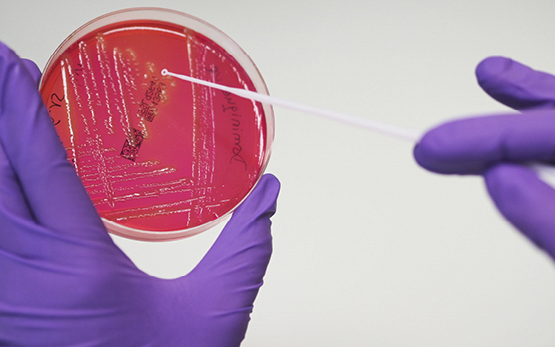Human food-borne illnesses occur worldwide and can lead to high economic losses. In addition to the incidence of new pathogens, special attention should be paid to the increasing occurrence of antiobiotic-resistant and persistent bacteria in animal and plant food chains. It is likely that the agriculture and food sector plays an important role in the formation of this type of resistance. The Swiss federal government is tackling the problem of antibiotic resistance with a broadly supported national strategy (‘StAR’). On the one hand, the agriculture and food sector is exploring how existing and new pathogens as well as antibiotic-resistant bacteria can be detected at an early stage, and how safety concepts can be adapted in the production, processing and marketing spheres. On the other hand, it is asking how to measure the entry and spread of antibiotic resistance and persistence along selected value chains, what preventive measures can be used to limit this spread, and how to reduce pathogenic microorganisms as well as their toxins (e.g. mycotoxins) on agricultural products and foods. The aim is to detect and quantify health risks by means of risk analyses. This research field decisively supports the safety of foodstuffs and agricultural products, and hence their exportability, with research results, challenge tests, checks, surveys and risk-based recommendations.

Projects of the SRF Food Safety





